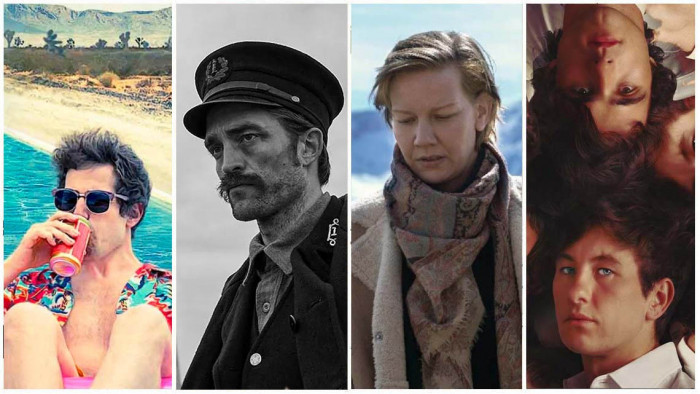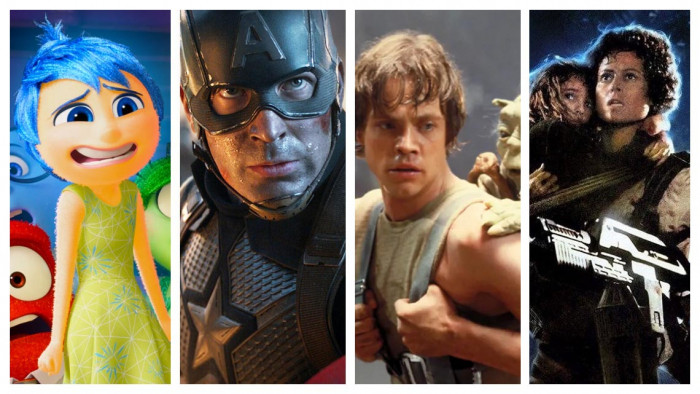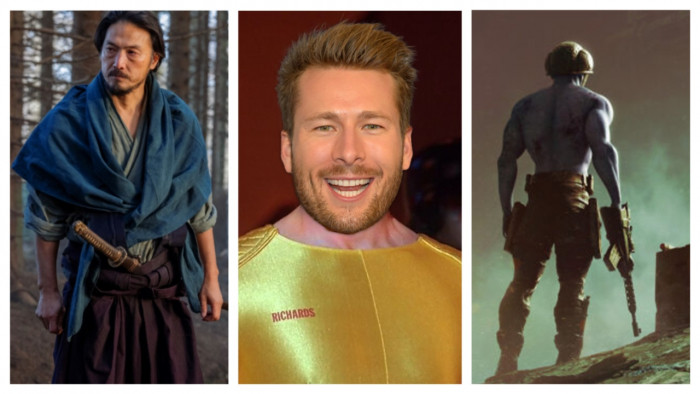Why Rocky is the most important film about masculinity ever made
As the film turns 40, here's why the boxing saga is so much more than an underdog story


Forty years after it first slogged its way into cinemas (3 December, 1976 to be exact), Rocky remains Hollywood’s greatest icon of masculinity, and continues to inform our sense of what it means to be a man. And chances are you may never have realised it.
The franchise it spawned has mediated the changing face of masculinity across four decades and had a profound effect of the male psyche. Indeed, when it comes to films about manliness, Rocky is still the champ – and the “Italian Stallion” is a more complex fellow than most would give him credit for.
When we first meet Rocky he’s been tossed aside by his trainer Mickey for not meeting his potential and working as hired muscle for a loan shark (“It’s a waste of a life,” screams Mickey). Rocky doesn’t really have the stomach for it, refusing to break someone’s thumbs despite orders from his mobster boss, but there’s no doubt Balboa is a man who’s seen (and dished out) a lot of violence on the hard streets of Philadelphia.
His shorts may differ in colour from sequel to sequel but his collar remains staunchly blue, a gentle soul trapped in a world he doesn’t really understand, the product of an environment where sometimes fighting is the only way out.
Violence is central, of course, as Rocky’s eventual chance-of-a-lifetime fight against world champ Apollo Creed symbolizes his journey to proving himself as a man. That’s all part of the enduring pleasure of the boxing movie – from Rocky to Bleed For This - and the undeniable pleasure of a film in which the hero solves his problems by literally smashing adversity in the face.
On the surface, it’s a very traditional – outdated, even – image of masculinity.

“The man who asserts his identity through violence is a very old fashioned idea,” says Dr Mike Chopra-Gant, lecturer in media, culture, and communications at London Metropolitan University. “You can take that back to John Wayne in the 1950s. It’s a version of that. It seems quite anachronistic. It would be interesting to see how a younger audience of today sees Rocky.”
And though Rocky outwardly embodies everything valued by traditional notions of masculinity – strength, physicality, double-hard fighting skills – the character’s real battle is a spiritual and emotional one.
For Rocky, true manliness isn’t about getting bashed in the cranium and keeping going for 15 rounds. It’s about integrity and making something of himself. In fact, the character’s a layered, shining example of what we value in modern men: he’s honest, sincere, respectful, and not afraid to admit that emotions are his weakness (“I’m afraid!” he shouts at Adrian in Rocky III, knowing full well he’s in for another hiding off Clubber Lang).
There’s an added layer when you factor in the true story behind the original movie. As a struggling actor, Sylvester Stallone famously refused to let anyone else play the lead role – even established stars such as Robert Redford or James Caan. Stallone took a huge pay cut in order to star in the film he wrote.

It was a smart move. Stallone’s performance of the character – his fighting spirit, the difficulty to properly articulate himself – with such pathos, it immediately landed an emotional sucker punch with men everywhere. It became a true underdog story both on and off screen, winning the Best Picture, Best Director and Best Editing Academy Awards in 1977. The series would also go on to mirror the ups and downs of Stallone’s Hollywood career.
It’s not all positive though. One of the criticisms levelled at the original Rocky is its channelling of “white masculinity” – particularly in his fight against the black champion, Apollo Creed, quite obviously based on the charismatic Muhammad Ali.
“This is a recurring theme in movies that deal with men,” says Dr Chopra-Gant. “The idea of the poor embattled white man. He gets pretty beaten up in the film. Yes, he’s triumphant in the end but it’s a hell of a fight to get there.
“One of the themes that comes up in how men are depicted in cinema is the idea of a crisis of masculinity. You’ll find this back in the 1950s, through the 1970s, and also in contemporary terms. It seems that masculinity is always in crisis, in some way.
“In the 1970s it’s centred around the economic crisis and the duel threat to white masculinity from the 1960s’ civil rights movement and feminism. Masculinity’s trying to reconfigure and reassert itself against those.”
Interestingly enough, when the series rebooted with Creed earlier this year, it explored black masculinity as Apollo Creed’s son Adonis fights to find his place in the world and make peace with a father he never knew.

That’s what makes it such an important piece of masculine cinema – it’s transgressive. Action movies have always been the great mediator of masculinity, and though the Rocky series began life as a drama, its switch to action and representation of the character speaks volumes about the changing face of men and masculinity in the popular consciousness.
In the Seventies, Rocky is a rugged man’s man, characterised by a steely determination and his struggle against a tough economic backdrop. By the time we get to Rocky III and IV in the early-mid Eighties, he’s become something else entirely – a chiselled, well-oiled symbol of pneumatic masculinity, the popular image of the male body and excessive strength that dominated that decade, also characterised by hulking, henchman-crushing movie stars such as Arnold Schwarzenegger and Rocky IV opponent Dolph Lundgren. (Let’s not forget it’s political too – Rocky effectively ended the Cold War with his “If I can change, we can all change” speech. Even Soviet Union leader Mikhail Gorbachev gave him a standing ovation for that one.)
When he returns for the dreary Rocky V in 1990, the character – and the image of men he’d previously represented – is already woefully out of date and in drastic need of self-awareness. The character’s far more successful return with Rocky Balboa in 2006 saw him as a broken down vision of old school manliness, not just a reflection of how the image of the action hero had changed in 20 years (the self-deprecating, trimmed-down heroes of Marvel would soon take centre stage) but the anxieties that had to dominate men in the 21st Century.
Then in Creed, Rocky battled cancer – a gutsy development for a character so commonly defined by strength. Even an icon of unbreakable masculinity, it seems, can be hurt, broken down, and must face his own mortality.

It stands to reason that an unashamedly male franchise spanning 40 years should reflect such changes. According to Dr Chopra-Gant, masculinity, like all identities, is unstable.
“In movies and culture generally we see it constantly have to reassert itself and reclaim ground against the context of what debates are going on around other forms of identity at the time.
"I think it’s something that resurfaces every time there’s a big economic crisis. People are even talking about it now.”
One constant across the films, however – and the thing that makes Rocky such a truly important slice of masculinity – is that no matter what decade, who his opponent is, or what state the men of the world are in at the time, he’s the true embodiment of fighting against the odds.
Charging up those steps, powering through each training montage, and staging a mother-effer of a comeback in every big fight of his boxing career, Rocky has come to symbolise something most men can relate to – something so primal, so macho, so inspirational that just hearing that opening riff of Eye of the Tiger secretly makes us want to jump up and start throwing punches, or run further than we’ve ever run before.

Indeed, the idea that men would use the Rocky soundtrack for motivation is very real (even if we do turn down the volume on our headphone so we can’t be overheard). Sports psychology expert Dr Costas Karageorghis, author of Applying Music in Exercise and Sport, told ShortList that even he uses the main Rocky theme for an extra boost when working out – the mental associations with the character have a genuine effect of motivation and energy levels.
“Music forms an emotional tag in the brain,” says Dr Karageorghis. “We link specific pieces of music with the heroic deeds of protagonists we see on the sliver screen. Those tracks then conjure the image of the protagonist, striving for glory, trying to overcome adversity, reaching for self-realisation.
“There’s no better example than the Rocky film series. With the strong musical cues and heroic associations of the character, it’s the perfect package for creating a motivational mindset.”
This is perhaps the best example of how Rocky Balboa has bashed his way into our psyche and understanding of manliness – whether that means having a pumped-up body, honesty and integrity, or the fighting spirit to go the distance.
“If we’re constantly presented with an image of masculinity, that becomes ingrained in the culture as a norm,” says Dr Mike Chopra-Gant. “It doesn’t have a direct effect in a simple way, but it does have some kind of influence on our ideas of what it means to be a man, and what a real man is.”
In terms of channelling and speaking directly to the male consciousness, Rocky’s impact is unparalleled. Still undefeated, you could say.
Latest
Related Reviews and Shortlists


The 10 best war movies of the 21st century








